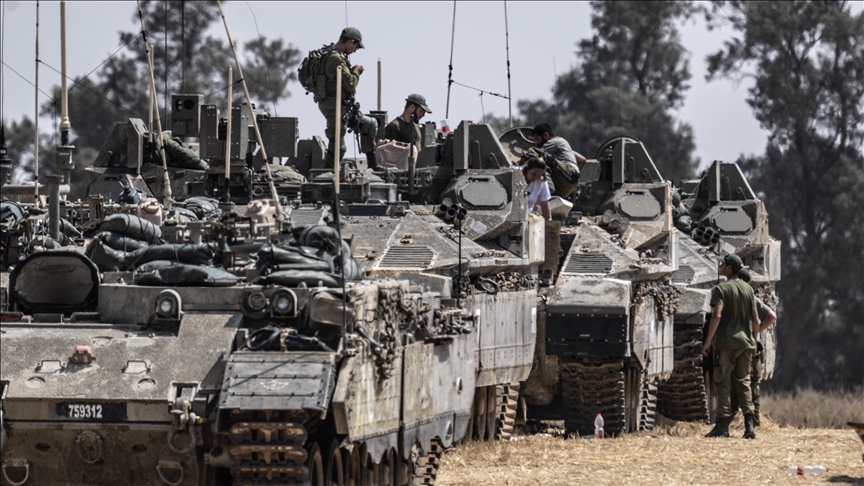GENEVA
The World Health Organization (WHO) on Friday said a contingency plan is in place in case of an Israeli ground offensive in Rafah, southern Gaza, but added that such a plan would not be enough to prevent “expected additional mortality.”
“We are, of course, making contingency plans to help ensure that the health system is … prepared and can continue to provide care,” spokesperson Richard Peeperkorn told a UN press briefing in Geneva.
However, Peeperkorn said: “This contingency plan is a band-aid. It will absolutely not prevent the expected substantial, additional mortality and morbidity caused by a military operation.”
Despite measures, he said, the ailing health system will not be able to withstand the potential scale of devastation that the incursion will cause and warned that the incursion into Rafah could cause the three hospitals there to become “inaccessible and non-functional.”
“Escalation could also render the European Gaza Hospital inaccessible,” Peeperkorn said. “This will have a knock-on effect on the overall health system as patients will need to be transferred to other already overcrowded hospitals, putting their health further at risk.”
“Also, of course, a military operation will lead to a new wave of displacement, more overcrowding, less access to essential food, water, and sanitation,” the spokesperson added.
Contingency efforts in south, north
As part of the contingency plan, Peeperkorn said, a new field hospital is being set up in Al Mawasi in Rafah.
The WHO also has set up a “large warehouse” in Deir Al Balah and moved supplies to ensure rapid access and movement of supplies to Khan Younis, the Middle Area, and north Gaza, he said.
He added that supplies have also been prepositioned at Al-Aqsa and European Gaza hospitals.
Meanwhile, in the north, the expansion of services is being supported at Al-Ahli, Kamal Adwan, and Al-Awda hospitals through emergency medical teams and the prepositioning of supplies, the spokesperson said.
According to him, plans are also being developed to support the restoration of the Patients’ Friendly Hospital, focusing on pediatric services, and expansion of primary health care centers and medical points.
Rafah crossing should remain open
He also said that the WHO is “extremely concerned” that due to the possible military operation in Rafah, “the crossing will be closed off.”
As part of the contingency plan, he said, the agency and its partners are pushing for “whatever happens, the crossing remains open” as it is at the heart of the humanitarian operation.
Regarding malnutrition, the spokesperson said that there is “a slight improvement” in food availability and variety but Peeperkorn stressed that such “a slight improvement” cannot be read as the risk of famine is declining.
Israel has launched a brutal offensive on the Gaza Strip since a cross-border attack by the Palestinian group Hamas on Oct. 7, 2023, which killed nearly 1,200 people.
Nearly 34,600 Palestinians have since been killed and over 77,800 others injured amid a tight siege imposed by Israel, which left the entire population, especially residents of northern Gaza, on the verge of starvation.
More than six months into the Israeli war, vast swathes of Gaza lay in ruins, pushing 85% of the enclave’s population into internal displacement amid a crippling blockade of food, clean water and medicine, according to the UN.
Israel stands accused of genocide at the International Court of Justice, which has ordered Tel Aviv to ensure its forces do not commit acts of genocide and take measures to guarantee that humanitarian assistance is provided to civilians in Gaza.

